A brand new analysis research has been printed on paraxanthine, displaying higher cognitive efficiency from paraxanthine than caffeine and placebo after a 10km run.[1]
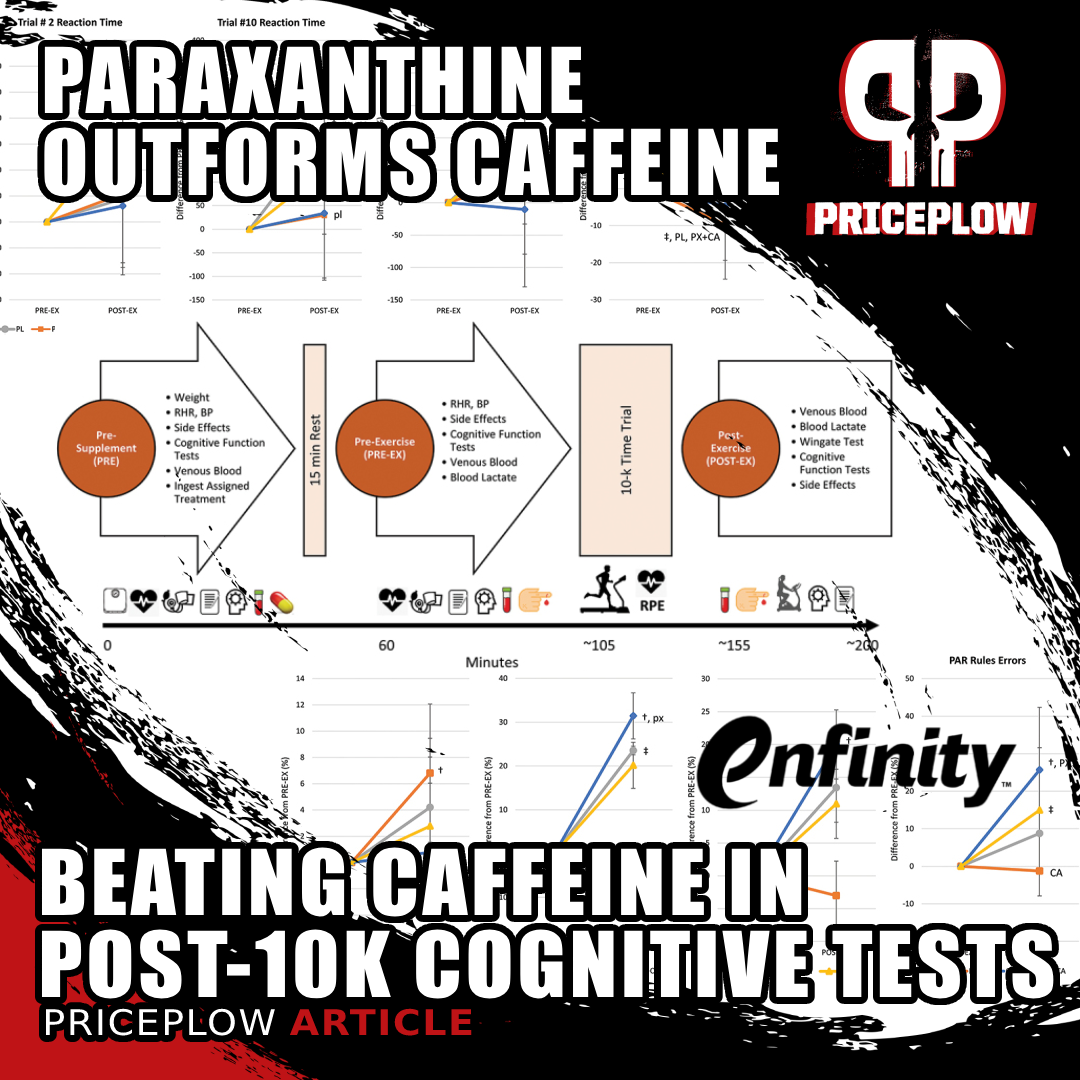
A brand new research finds enfinity® paraxanthine outperforms caffeine in boosting cognitive operate after a 10k run. Clear considering underneath stress is essential to profitable, and paraxanthine could possibly be the sting you want.
In case you’ve been following the dietary complement area the previous couple of years, you’ve likely heard of enfinity paraxanthine, typically dubbed as caffeine 2.0.
Paraxanthine, a major metabolite of caffeine, supplies primarily the identical stimulant, metabolic, and efficiency as caffeine, with out caffeine’s most noticeable drawbacks. It goes by the commerce identify enfinity, and is offered and distributed by TSI Group, Ltd.
The transient advantages of paraxanthine
Most of paraxanthine’s superiority might be defined in two basic attributes:
Taking paraxanthine as an alternative of caffeine circumvents the manufacturing of caffeine’s different two metabolites – theophylline and theobromine – which have longer half-lives than caffeine and drive a good portion of caffeine’s facet impact profile.
As corollary to this, paraxanthine has sooner metabolism and shorter metabolic half-life, so it may be taken a bit later within the afternoon than caffeine.
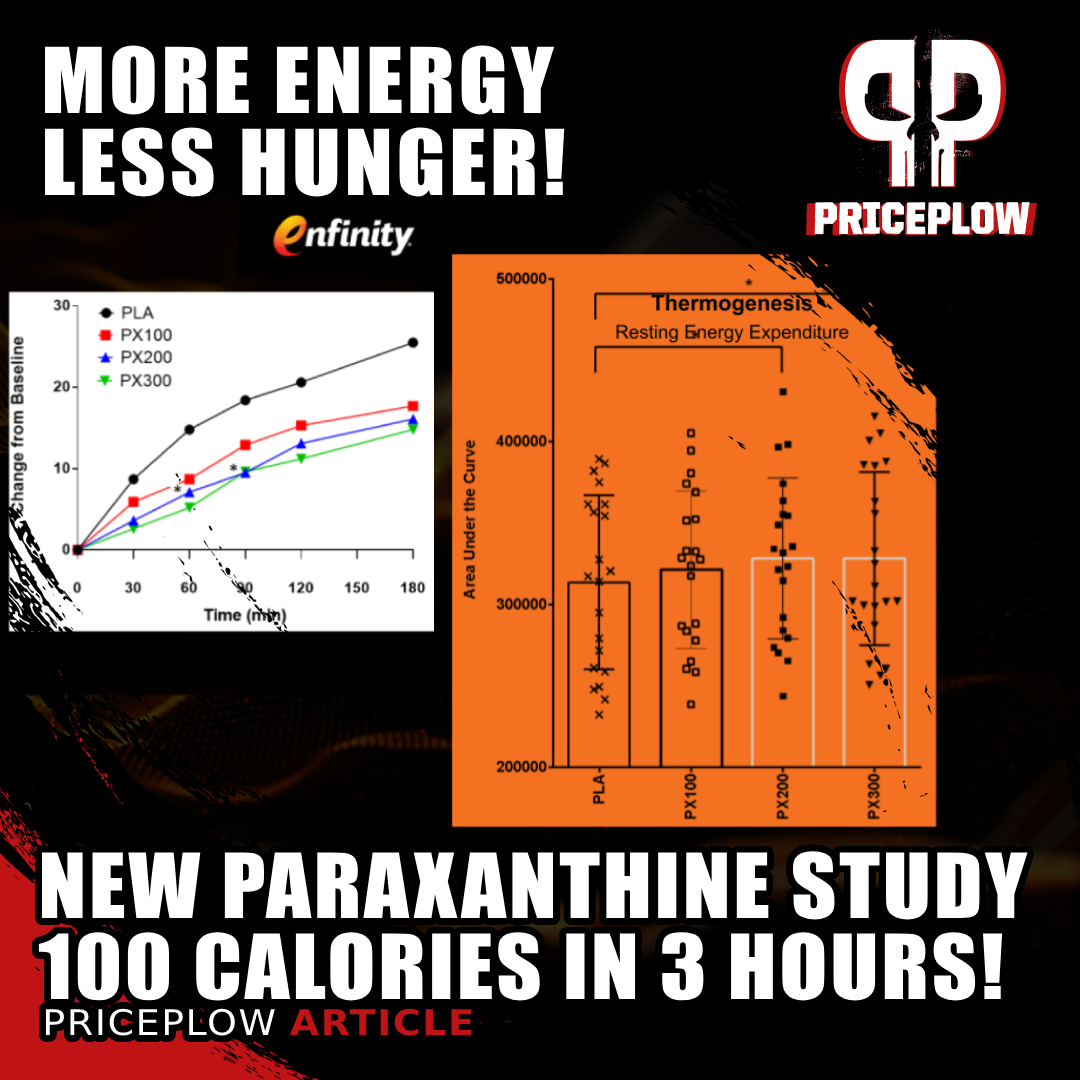

New analysis information has been printed on enfinity (paraxanthine), displaying elevated power expenditure in comparison with placebo (100 energy in 3 hours) — but it decreased urge for food and coronary heart price![2]
This, and much more, is roofed in our complete, scientifically-referenced article, “Paraxanthine: Caffeine’s Main Metabolite for Laser-Focused Vitality“.
The underside line is that utilizing enfinity allows customers to considerably cut back anxiousness and jitteriness, and goal the specified results in a tighter time window. It’s quite a bit much less prone to trigger sleep disturbances, which means there’s much less potential to intrude with psychological and bodily restoration.
We additionally just lately analyzed new analysis displaying that paraxanthine reduces urge for food whereas rising power expenditure (to the tune of about 100 energy in 3 hours),[2] however there was extra information printed across the identical time:
How we obtained right here: A recap of current paraxanthine analysis
Arguably, bettering efficiency is the sphere the place caffeine-paraxanthine comparisons are at the moment greatest supported by analysis.
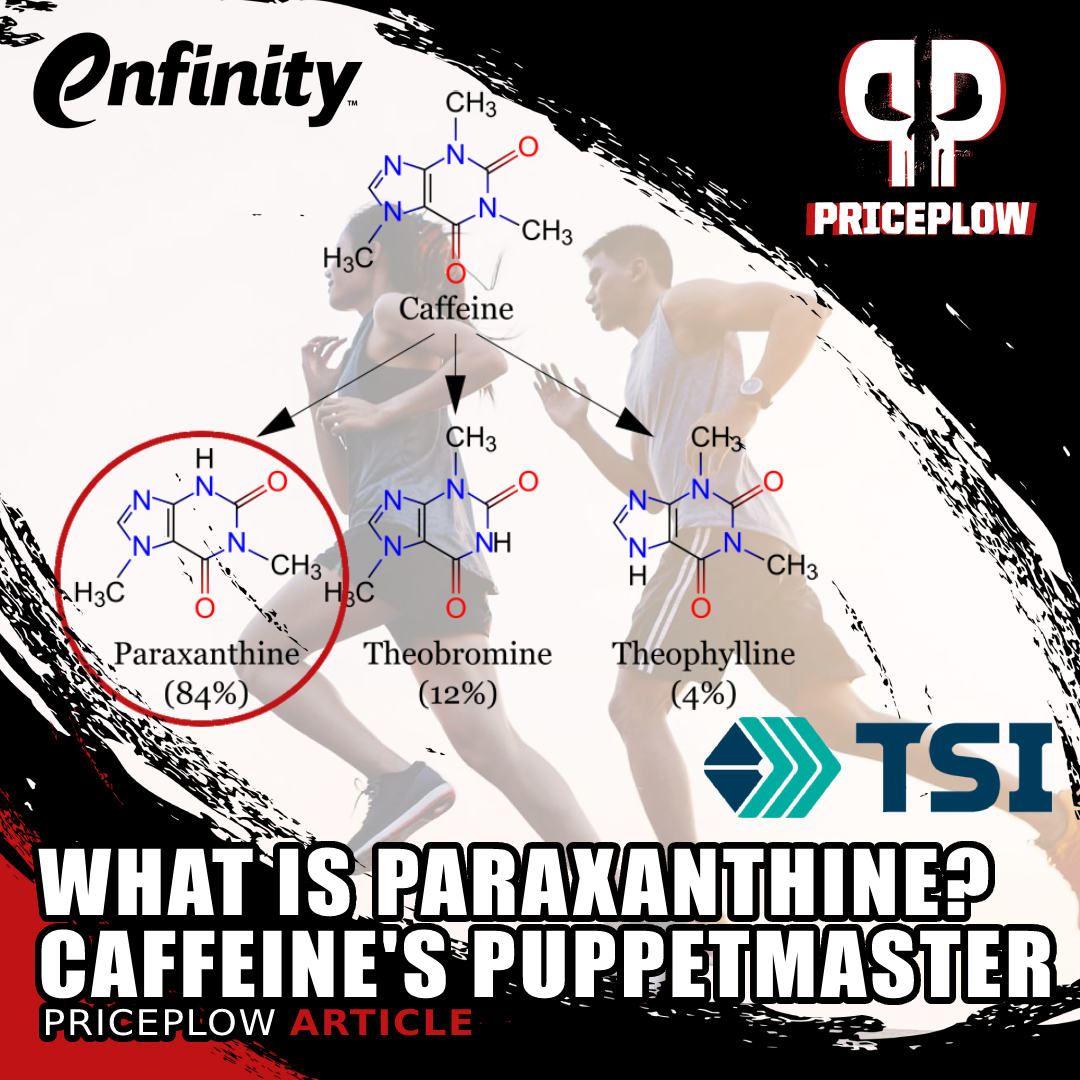

Paraxanthine is the first metabolite of caffeine, offering most of caffeine’s useful results. Now you may take it instantly with enfinity!
Research have demonstrated that paraxanthine, like caffeine, can enhance the physique’s price of fats burning (lipolysis)[3] and power expenditure,[2] which aren’t simply fat-burning mechanisms, however could possibly be ergogenic as nicely. Just like caffeine, paraxanthine anti-fatigue results via adenosine antagonism,[4] and upregulates dopaminergic exercise.[5]
Two totally different randomized, double-blind, placebo-controlled research discovered that paraxanthine administration precipitated important enhancements in govt operate, response time, psychological error price, sustained consideration, accuracy, response management to visible stimuli, and reminiscence.[6,7]
The identical benefit has been seen in athletic efficiency, the place paraxanthine was proven to considerably enhance muscle progress, enhance power, and enhance athletic endurance in a preclinical trial.[8]
2024 Paraxanthine Research #2 – Beating Caffeine in Submit-10k Cognitive Assessments!
Now we’ve got a brand new paraxanthine research psychological and bodily efficiency collectively – extra particularly, paraxanthine’s capability to enhance cognitive efficiency within the context of strenuous train.[1]
Standardized cognitive checks throughout paraxanthine analysis
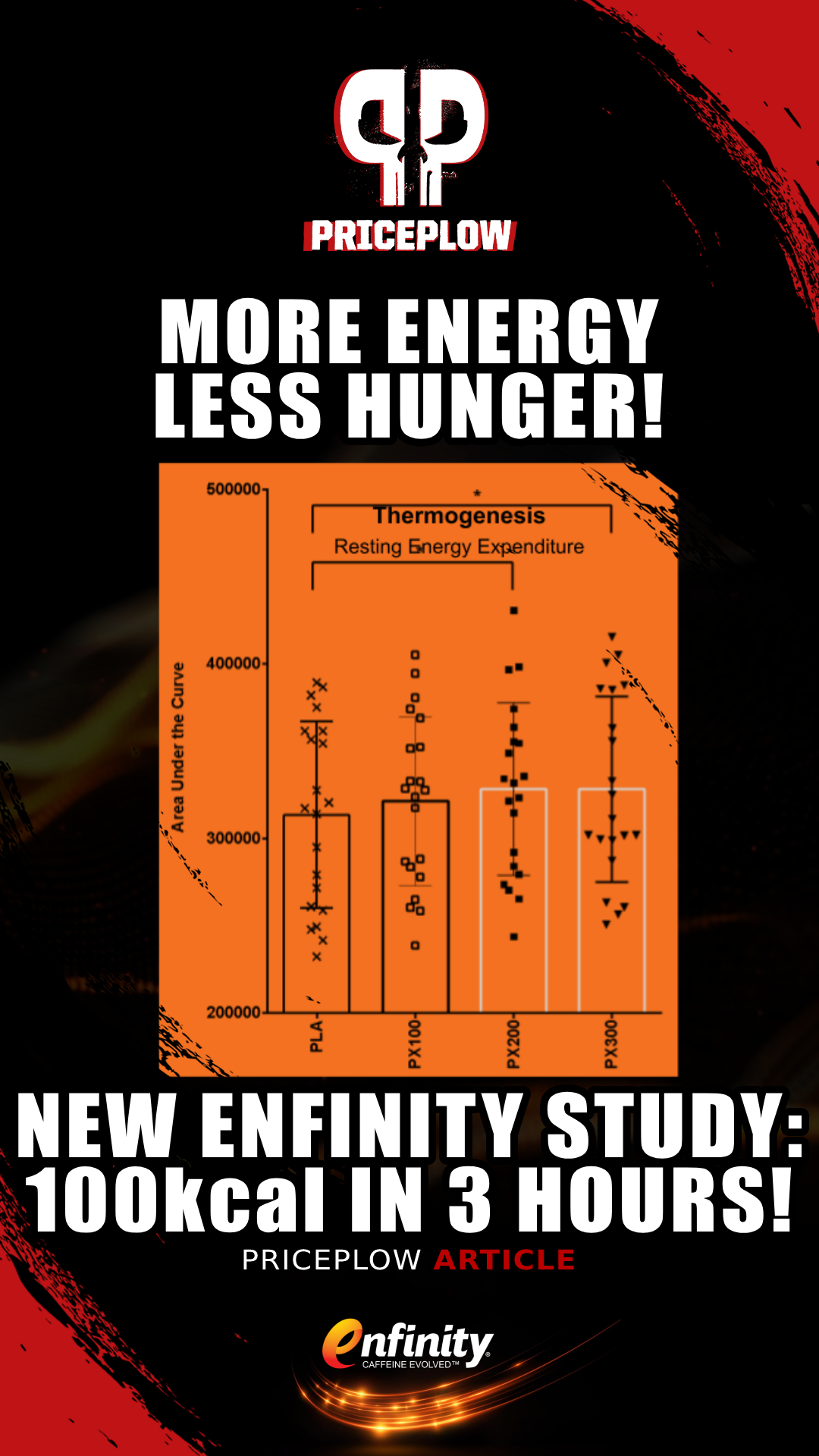

New analysis information has been printed on enfinity (paraxanthine), displaying elevated power expenditure in comparison with placebo (100 energy in 3 hours) — but it decreased urge for food and coronary heart price![2]
The cognitive checks are described on the backside of this text — the researchers used related checks as two earlier trials.[6,7] That is nice as a result of scientists have settled on customary neuropsychological assessments, enabling constant measurements throughout a number of research. This makes it straightforward for us to check the outcomes of this new research[3] to the earlier research we’ve cited,[6,7] giving us a coherent improvement of the paraxanthine analysis literature.
Research Strategies
This was a double-blind, randomized, and crossover research. Some great benefits of a crossover research, notably with a small pattern measurement like this one, are that it eliminates the doubtless confounding impact of particular person topic variability, by enabling the themes to function their very own controls. That is achieved by having them repeat the research a number of instances, as soon as for every therapy situation.[1]
So, right here had been the 4 therapy circumstances:
400 mg of a placebo (PL)
200 mg of PL + 200 mg of caffeine (CA)
200 mg of PL + 200 mg of paraxanthine (PX)
200 mg PX + 200 mg of CA (PX+CA)
Individuals visited the research lab 5 instances – one familiarization session, adopted by 4 experimental periods. Within the familiarization session, researchers defined the research protocol to the members, supplied knowledgeable consent, and had the members fill out a medical questionnaire. Additionally they measured the members’ peak, weight, resting coronary heart price, and resting blood stress. VO2max was additionally measured.[1]
One actually attention-grabbing factor about this research is that the researchers had the members repeat the cognitive checks thrice earlier than the experiment even started, with a purpose to guarantee a constant repeatable baseline. This eliminates the potential confounding impact of the members getting higher at taking the checks all through the research interval.
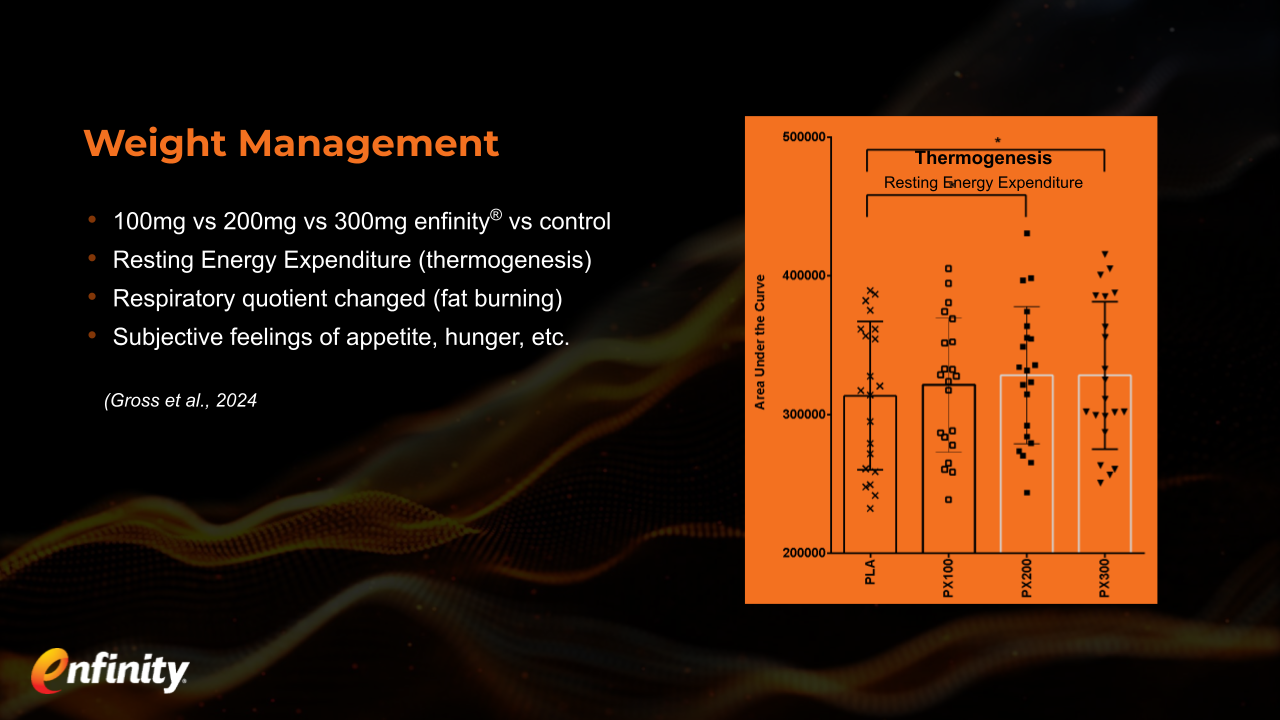

A slide supplied by TSI Group protecting the 2024 power expenditure research.[2]
This research went to extraordinary lengths with a purpose to guarantee enough experimental controls. For instance, the themes had been instructed to abstain from vigorous exercise, alcohol consumption, and OTC medicines for the 24 hours previous the experiment, plus 8-12 hours of fasting earlier than visiting the lab.
Principally males, all runners with a mean mile break up underneath 8 minutes
The members had a mean age of 26, and consisted of largely males (11 males and 1 feminine). They had been chosen partly for his or her pre-conditioning as runners – every participant needed to display a mean mile break up time of 8 minutes or much less, which could be very respectable.
In different phrases, these had been skilled athletes, which is certainly what we prefer to see in sports activities diet research. Untrained athletes have a tendency to reply to dietary supplements extra strongly than skilled athletes, since their preliminary diversifications to the train situation haven’t but been accomplished. So, conducting a research in skilled athletes roughly mechanically lends higher credence to the outcomes.
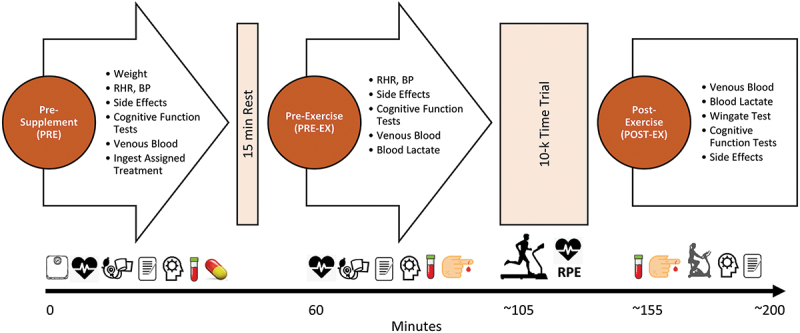

The research design[1]
Every of the 4 experimental periods proceeded as follows:[1]
After filling out a negative effects questionnaire, taking the cognitive checks (PRE), the members ingested one of many 4 randomly assigned therapy circumstances.
Then, after resting for fifteen minutes, the themes repeated the cognitive checks and negative effects questionnaires (PRE-EX), they carried out a ten kilometer time trial.
After ending the race, they as soon as once more took the cognitive checks, plus a Wingate take a look at (POST-EX).
Research outcomes
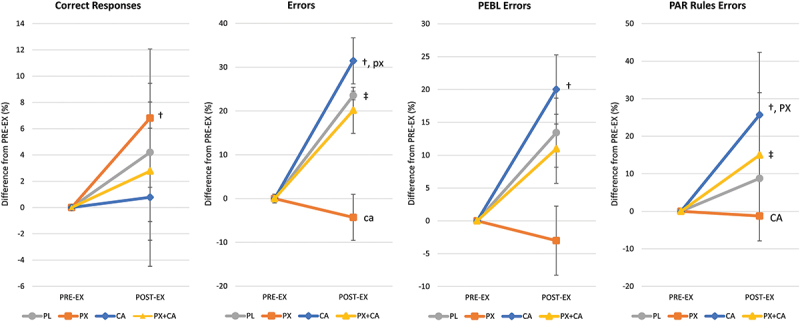

On the Berg-Wisconsin Card Sorting Check (BCST), paraxanthine (PX) appears to be like just like the clear winner of this four-way contest, however not all of those results achieved statistical significance.[1]
The evaluation of the Berg-Wisconsin Card Sorting Check (BCST) demonstrated important enhancements in a number of results from remedies involving PX (Placebo X) and PL (Placebo L) – appropriate responses considerably elevated from pre-exercise (PRE-EX) to post-exercise (POST-EX) underneath PL therapy (p = 0.011) and equally for PX therapy (p = 0.028). Moreover, a average impact measurement was noticed in errors underneath paraxanthine therapy in comparison with PX plus CA (Caffeine Additive) therapy, although the distinction was not statistically important (p = 0.077).[1]
The large takeaway right here was that paraxanthine elevated the variety of appropriate responses from PRE to POST-EX by 6.8%, whereas POST-EX errors with paraxanthine ingestion tended to be decrease than CA.[1] Paraxanthine additionally decreased POST-EX perseverative errors – the PX therapy precipitated a 26.9% discount in comparison with caffeine. In different phrases, PX beat caffeine on the Berg-Wisconsin Card Sorting Check.[1]
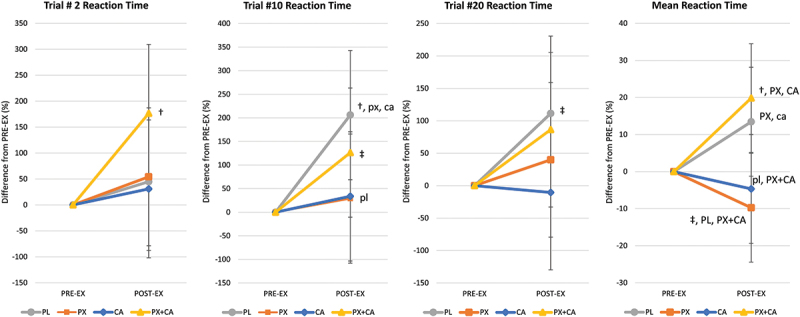

On the The Psychomotor Vigilance Activity Check (PVTT), solely caffeine and paraxanthine promoted sooner imply response instances, and paraxanthine beat caffeine.[1]
Outcomes on The Psychomotor Vigilance Activity Check (PVTT) had been extra attention-grabbing. Statistical evaluation confirmed that post-exercise response instances in trial #2 had been sooner underneath paraxanthine and caffeine remedies in comparison with mixed PX+CA therapy.
The imply response time tended to extend with placebo and PX+CA, whereas reducing from PRE-EX to POST-EX with paraxanthine alone – and, as you may see from the inset graph, by fairly an enormous margin. Evaluation of imply adjustments from PRE-EX values confirmed that placebo and PX+CA remedies led to elevated response instances, whereas paraxanthine and caffeine promoted sooner response instances.
No synergistic results between caffeine and paraxanthine
One other attention-grabbing discovering right here is that the mix of paraxanthine and caffeine didn’t present any synergistic results, which, because the authors of the paper level out, strongly implies that paraxanthine’s nootropic mechanism of motion is unrelated to caffeine’s. In different phrases, paraxanthine isn’t simply beating caffeine at caffeine’s recreation – it’s additionally doing one thing else completely.
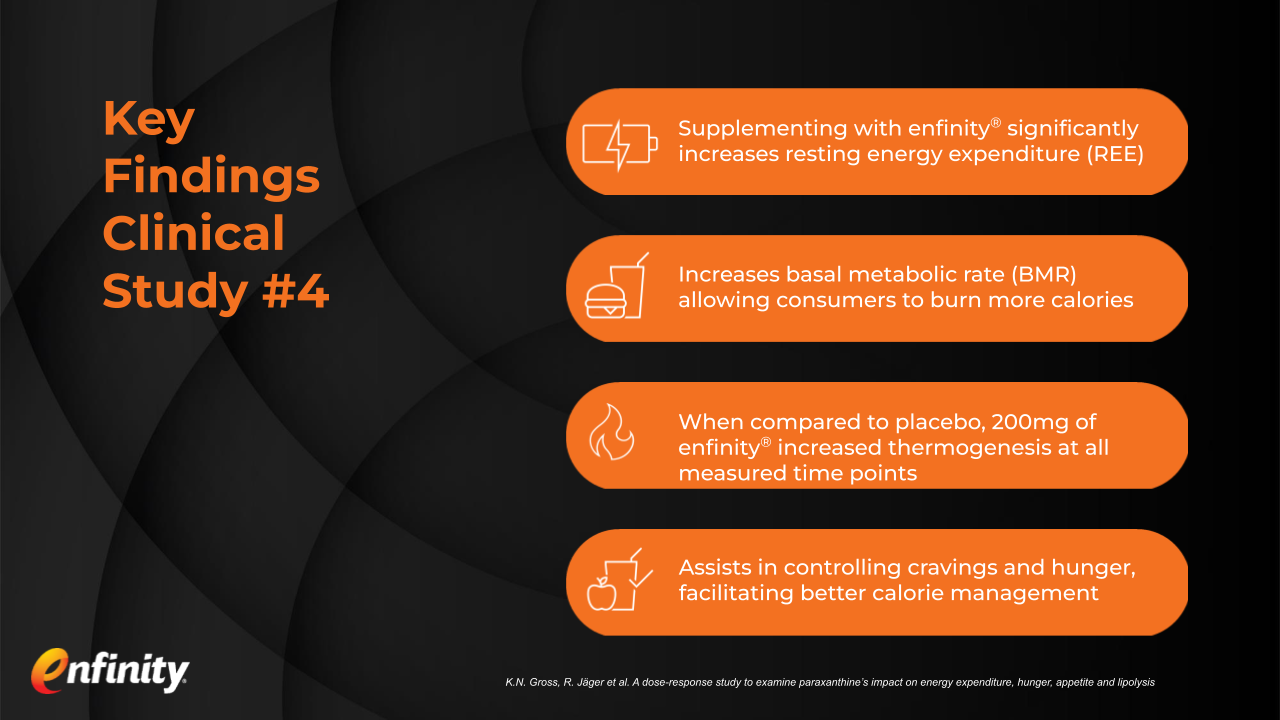

Key findings from the above power expenditure research on paraxanthine.[2]
The researchers speculate that paraxanthine’s distinctive nootropic results may be attributable to its inhibition of phosphodiesterase 9 (PDE9), which will increase nitric oxide (NO) neurotransmission.[1]
Extra particulars on the psychological checks carried out
As talked about above, we now have three research in frequent that every use two vital psychometric checks.[1,6,7] Let’s clarify them beneath:
The Berg-Wisconsin Card Sorting Check (BCST)
It is a neuropsychological evaluation used to measure govt operate, particularly cognitive flexibility, problem-solving, and the power to adapt to altering guidelines. Individuals are introduced with playing cards that differ in shade, form, and variety of symbols, and should match them to focus on playing cards primarily based on an unknown sorting rule.
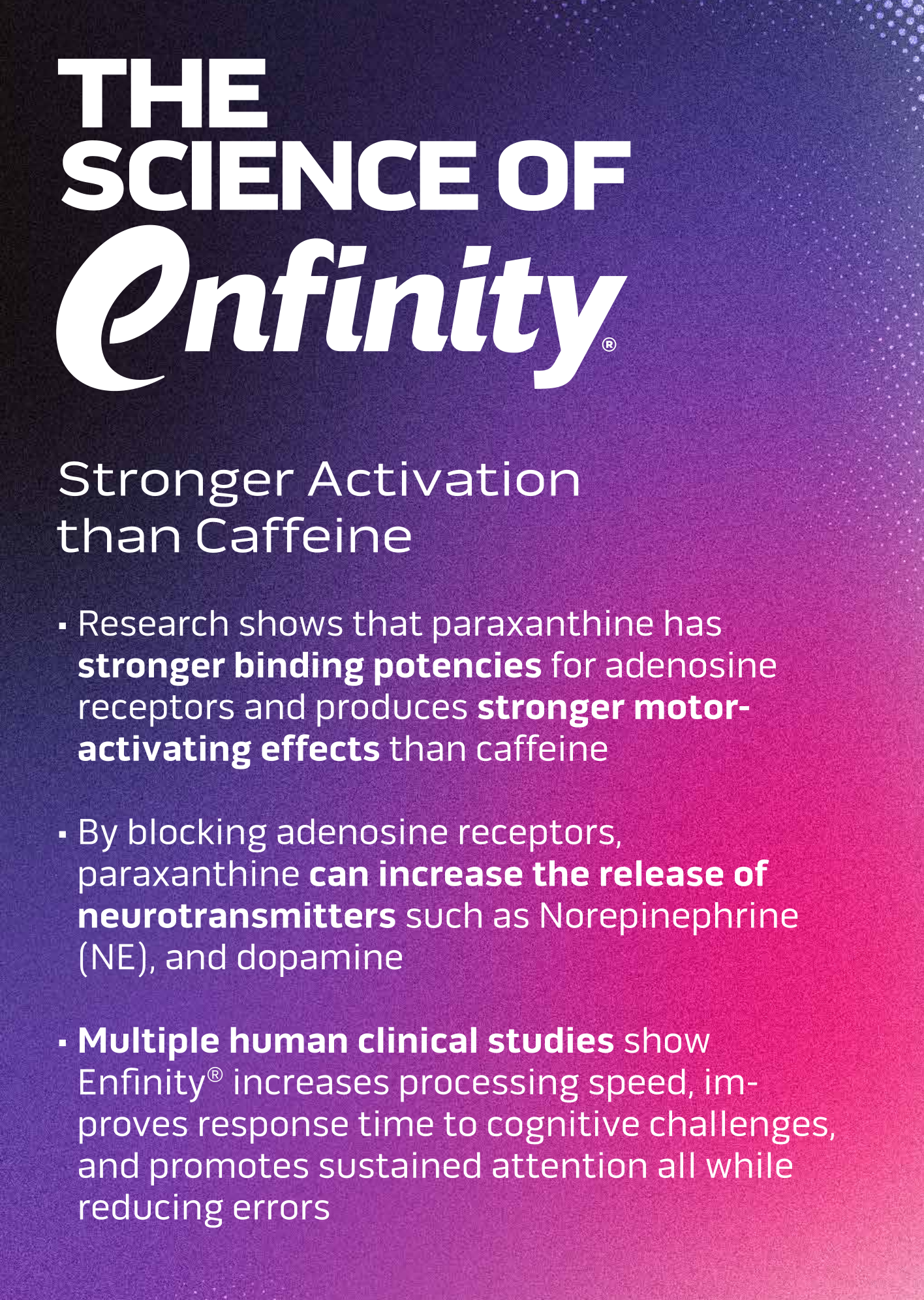

A short intro to the science of paraxanthine / enfinity. Picture courtesy of MuscleTech, who created the complement with the iQ Collection of dietary supplements.
Suggestions is supplied after every try, and the sorting rule adjustments periodically with out warning. Key metrics embrace appropriate responses, perseverative errors (persevering with with a earlier rule), and non-perseverative errors.
The Psychomotor Vigilance Activity Check (PVTT)
This measures sustained consideration and response time to visible stimuli. Individuals reply to a visible cue by urgent a button as rapidly as attainable. The PVTT assesses how nicely people keep focus and application over prolonged intervals, recording response instances and lapses in consideration. It’s extensively utilized in analysis on fatigue, sleep deprivation, and the consequences of stimulants on cognitive efficiency.
With constant use of those exams, we will now examine leads to totally different conditions throughout time, vastly rising our physique of information and enabling higher-quality comparisons between totally different trials.
Conclusion: Outperforming Caffeine? It’s Time to Take Observe
That is the primary randomized managed research to have a look at paraxanthine’s influence on cognitive operate following train. Though there’s a bent to miss nootropics in an athletic context, sustaining cognitive operate in sports activities is completely important to profitable. It’s within the remaining stretch of a protracted recreation, when everyone seems to be exhausted, that clear considering, quick reactions, and correct decision-making is almost certainly to determine the result.


Caffeine has three main metabolites, and one in every of them (paraxanthine) does the heavy lifting. The opposite two have very lengthy half-lives, which could possibly be interfering together with your expertise. Picture courtesy TSI Group
Having used each components, the information is smart from an anecdotal perspective — caffeine’s harder-hitting, up-and-down impact might help some kinds of athletic actions, however it comes at a cognitive value as soon as the ergogenic results have run their course. As soon as caffeine’s achieved its job, it’s not gone but — you’re merely left with the extra detrimental metabolites, and your complete “crash” course of is usually a large drag on each cognitive and bodily efficiency.
Whereas preliminary, the information additionally signifies that paraxanthine outperforms caffeine by way of complementary mechanisms of motion, which solely strengthens the case that paraxanthine is on monitor to be caffeine’s alternative in sports activities diet contexts – caffeine 2.0.
There’s definitely extra information approaching enfinity paraxanthine. You’ll be able to head again to our principal paraxanthine article, or join our information alerts beneath:




